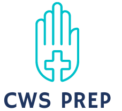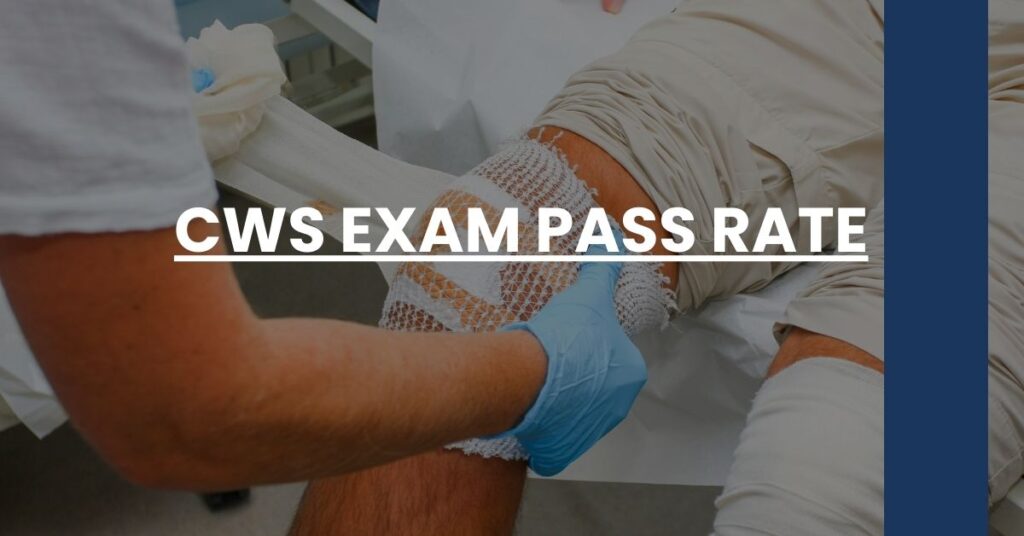The CWS Exam Pass Rate hovers between 56% and 68%, presenting a moderate challenge for candidates aiming to become Certified Wound Specialists. Knowing the pass rates reflects the rigorous nature of the examination and the level of expertise required in wound care.
In this article, you’ll gain insights into:
- Key statistics on historical pass rates, helping you gauge the exam’s difficulty.
- The CWS exam structure, so you know exactly what to expect.
- Effective strategies and resources that can boost your preparation and chances of success.
Achieve your professional milestone in wound care with confidence by understanding and preparing for the CWS exam’s demands.
- What Is the CWS Certification?
- Importance of the CWS Exam Pass Rate
- Historical Overview of CWS Exam Pass Rates
- Factors Influencing the CWS Exam Pass Rate
- How Is the CWS Exam Structured?
- Strategies to Improve Your Chances of Passing the CWS Exam
- Resources for CWS Exam Preparation
- The Role of CWS Certification in Career Advancement
- Conclusion: Maximizing Your Potential for CWS Exam Success
What Is the CWS Certification?
As a healthcare professional, you recognize the importance of specialization. In the realm of wound management, obtaining a Certified Wound Specialist (CWS) certification is akin to securing a badge of excellence. Administered by the American Board of Wound Management (ABWM), this certification is designed for experts who demonstrate a superior level of knowledge and skill in the area of wound care.
The CWS certification isn’t just a piece of paper; it’s a testament to your commitment to the specialized field of wound care. By earning this distinguished title, you elevate your professional status, opening doors to advanced career opportunities and peer recognition. The rigorous process involves meeting educational and professional requirements, followed by passing a comprehensive examination that tests the depth and breadth of your wound care knowledge.
Importance of the CWS Exam Pass Rate
When considering the Certified Wound Specialist examination, the pass rate is much more than a simple statistic—it’s a gauge of the exam’s difficulty and may reflect the level of preparation required. Knowing the CWS exam pass rate helps you set realistic expectations for your study regimen and the effort needed to succeed. The pass rate can also influence the resources you might choose to utilize, as higher pass rates may indicate that particular study materials or courses are effective.
For organizations, a favorable CWS exam pass rate enhances their reputation, showcasing the efficacy of their preparatory materials or programs. The certifying body, the ABWM, also uses this rate to measure the suitability of the exam content and to possibly revise its format or difficulty.
Historical Overview of CWS Exam Pass Rates
Stepping back in time, you’ll observe fluctuations in the CWS exam pass rate that provide insights into the exam’s changing landscape. The numbers tell a story about the testing environment and the candidates who have ventured through it.
Looking at data such as those from the ABWM, it’s clear that pass rates have varied over the years. For instance, the pass rate saw dips and peaks in response to factors like curriculum revisions or changes in educational standards. Understanding this historical context allows you to better appreciate the current trends and how they might influence your preparation approach.
Factors Influencing the CWS Exam Pass Rate
Several forces act upon the CWS exam pass rate, each with the power to tip the scales in favor of, or against, success. Let’s dissect these one by one:
- Exam Format Revisions: Any changes in the structure or content of the CWS exam can shake up the pass rate. For example, a shift from memorization-based questions to application-based scenarios may require candidates to adjust their study strategies.
- Preparation Materials: The availability and quality of preparation materials play a significant role. High-quality, ABWM-endorsed resources are likely to provide a more in-depth understanding, improving pass rates.
- Candidate Preparedness: Ultimately, it’s your dedication and effort that make the most significant impact. A thorough and disciplined study routine aligns with higher success rates.
- Test-Day Conditions: External factors, such as testing environment and personal circumstances on the day of the exam, can also affect performance.
For an in-depth analysis of these elements, you might explore insights provided by resources like WoundEducators, which delve into the intricacies of exam format changes and candidate preparedness.
As a prospective CWS candidate, understanding these factors encases you in an armor of preparedness, enabling you to approach your test strategically and effectively. It puts you in control—no longer at the mercy of the unknown, but equipped with the knowledge to conquer the challenges that lie ahead.
How Is the CWS Exam Structured?
When you step into the exam room for the CWS certification, you’ll be facing a test designed to measure your expertise across numerous facets of wound care. It’s a multidimensional challenge that you can tackle more effectively with a clear understanding of the exam’s architecture.
The CWS exam typically consists of multiple-choice questions, each crafted to assess your knowledge in specific content areas. Expect questions that cover topics such as:
- Anatomy and physiology of the skin
- Types and phases of wound healing
- Wound etiology and classification
- Principles of wound management and treatment modalities
- Legal, ethical, and regulatory issues related to wound care
The exam’s format is devised to gauge not just what you know, but how well you can apply your knowledge in practical, real-world scenarios. For a detailed breakdown of the content you’ll encounter, perusing the ABWM’s exam resources is a wise starting point.
As you familiarize yourself with the blueprint of the exam, imagine how each topic plays a role in the holistic care you provide to your patients every day. This exam isn’t just a test; it’s a reflection of your career and your dedication to excellence in wound care.
Strategies to Improve Your Chances of Passing the CWS Exam
Adopting robust strategies is vital for boosting your odds when facing the CWS exam. Consider these tactics to ensure you are thoroughly prepared:
1. Sequential Learning: Tackle the material in a structured manner, starting with foundational concepts and building up to more complex ones.
2. Practical Application: Whenever possible, translate what you learn into hands-on practice. This solidifies your understanding and helps you recall information more efficiently.
3. Test Simulations: Regularly challenge yourself with practice questions and simulated exams. This habit familiarizes you with the exam’s pacing and pressure, turning the unknown into the expected.
4. Rest and Recovery: Allocate time for breaks in your study schedule. Rest is a critical component of learning, as it aids in information retention and stress reduction.
In every strategy you deploy, keep the CWS exam pass rate in mind. It is the benchmark of success you’re aiming for, so each study session should be a step toward that goal.
Resources for CWS Exam Preparation
Diving into the right resources can have a profound impact on your readiness for the CWS exam. Here’s a variety of prep materials to consider incorporating into your study plan:
- Official CWS Study Guides: Begin with resources endorsed by the ABWM, like their Home Study Preparation Guides, which are tailored to align with the actual exam content.
- Continuing Education Courses: Look for accredited courses that focus explicitly on wound care and the competencies evaluated by the CWS exam.
- Peer Study Groups: Joining a study group allows for discussion, exchange of ideas, and support from colleagues who are also navigating the CWS journey.
- Mentorship: If possible, work alongside an experienced CWS to gain deeper insight into the practical aspects of wound care.
Harness a combination of these resources to create a well-rounded preparation experience, tapping into knowledge that can help elevate your chances of surpassing the CWS exam pass rate.
The Role of CWS Certification in Career Advancement
In your relentless pursuit of CWS certification, remember that this is more than just passing an exam—it’s about propelling your career to new heights. As a Certified Wound Specialist, you will:
- Be recognized as an expert in wound care management.
- Potentially access higher-level job positions with increased responsibilities.
- Command a higher salary due to your specialized skills.
For tangible examples of how a certification like the CWS can affect professional trajectories, consider the insights highlighted on career advancement and how credentials can bolster one’s standing in the field.
Conclusion: Maximizing Your Potential for CWS Exam Success
Embarking on the journey to overcome the CWS exam and understand the nuances of the CWS exam pass rate can be daunting. Yet, with the knowledge and insights provided here, you are now equipped to approach this challenge with acumen and poise.
As you step forward, remember that each study session, every practice question, and all the resources at your disposal are pieces of a larger puzzle. They’re the constituents of your success, working together to help you join the ranks of Certified Wound Specialists.
The path to achieving and surpassing the CWS exam pass rate is paved with dedication, strategy, and the will to excel. Now it’s your turn to stride confidently toward that threshold of professional achievement, knowing that you are ready to seize the opportunities that lie beyond.
CWS exam pass rate: Understand factors, prep strategies, and how it affects certified wound specialist career prospects.

